Snorkeling, like any water activity, can be dangerous.
While many millions of people snorkel each year safely, it is possible to drown while snorkeling, and tragically, accidental deaths occasionally occur.
We’re going to look at how common drowning while snorkeling is, the most frequent causes, and what we can do to reduce the risk.
- How Many People Drown Snorkeling Each Year?
- 11 Common Reasons for Drowning While Snorkeling
- How High Is the Risk of Drowning Compared To Other Water Sports?
- 11 Tips To Prevent Drowning When Snorkeling
- 1. Snorkel with a buddy
- 2. Consider Your Health
- 3. Wear a Floatation Device at All Times
- 4. Snorkel with a Properly Organized Group
- 5. Choose Conditions That Are Suitable
- 6. Don’t Push Past Your Comfort or Skill Level
- 7. Practice with Your Equipment
- 8. Don’t Touch Corals or Marine Life
- 9. Don’t Get Too Distracted
- 10. Only Duck Dive with A Buddy Watching
- 11. Take Regular Breaks and Stay Hydrated
- How To Help Other Snorkelers in Trouble
- Conclusion
- You Might Also Like…
Disclosure: this post contains affiliate links (clearly marked with ), which means we may earn a commission if you buy something through them, at no additional cost to you.
How Many People Drown Snorkeling Each Year?
It’s tricky to determine how many people exactly die from snorkel-related drowning each year as there is minimal information available.
As a whole, the World Health Organisation reports on global drownings, but their numbers are not fully categorized.
They include large-scale incidents such as incidents at sea, floods, and tsunamis.
The vast majority of snorkeling takes place in tropical vacation destinations.
Unfortunately, most countries do not report snorkeling drowning incidents publically, making it impossible to generate a global figure.
However, there are some notable exceptions of more forward-thinking areas that publicly discuss their statistics as they try to improve water sports safety transparently.
Hawaii
The State of Hawaii Department of Health reports an average annual number of deaths from drowning, including residents and non-residents, as 83 people.
84%, or about 70, of these fatal drownings, happened in the ocean.
Snorkeling is the most common activity for ocean drownings in Hawaii and represents 27% of the total (approximately 22 people annually).
Snorkeling is one of Hawaii’s most popular ocean activities, and 49 percent of visitors took part in 2019.
10,424,995 people visited Hawaii in 2019, which means that approximately five million tourists snorkeled for the 22 fatalities (including those involving residents).
The Hawaiian Drowning and Aquatic Injury Prevention Advisory Committee works to reduce drownings and promote the safe use of the ocean.
Studies have been set up to investigate snorkel drowning incidents specifically.
Australia
Across Australia as a whole, it is reported that approximately 2.6 million people snorkel each year.
The average annual number of reported snorkel-related drownings is seven people for the whole of Australia.
Queensland, Australia
Queensland is home to the Great Barrier Reef, one of the world’s most popular snorkeling destinations.
The Queensland Government reports that around 1.1 million individuals snorkel a total of 2.25 million times each year.
Queensland records an average of five deaths while snorkeling each year for people taking part in organized recreational snorkeling activities.
11 Common Reasons for Drowning While Snorkeling
While we will look at separated potential causes for drownings, most incidents, in reality, involve a combination of factors.
For example, pre-existing medical conditions may only come into play when the circumstances, such as strong currents, meant that a victim suffered from overexertion or panic.
1. Pre-Existing Medical Conditions
A pre-existing condition, in particular, a cardiac condition, is a widespread cause of incidents in the water.
The victim may or may not have been aware of their condition, making it especially important that inexperienced snorkelers are still correctly supervised even when they have been medically screened.
It is thought that pulmonary edema is a more common cause of drownings than once understood.
Swimming-induced pulmonary edema (SIPE) will initially cause shortness of breath, excessive fatigue, or extreme coughing when in the water.
It can rapidly cause fluid to build up in the lungs stopping oxygen from entering the body.
If you ever start to feel excessively tired, have difficulty breathing, or start coughing, you should immediately get out of the water and get checked by a medical professional.
2. Inexperience
Unfortunately, the less experienced a snorkeler is, the more likely they are to get into trouble.
Snorkeling tends to be an activity that beginners often make on vacation.
Inexperience means a person is more likely to have trouble with their equipment or venture into inappropriate conditions.
3. Low or No Level of Swimming Ability
While it is possible to snorkel without being able to swim, it will increase the likelihood of getting into difficulty.
4. Not Using a Floatation Device
Many snorkelers experience problems that they could avoid if they were using a flotation device.
The device will help them avoid exhaustion and panic, which could both make a drowning incident more likely.
5. Not Using the Buddy System
By always snorkeling with a buddy, you have someone to look out for and someone to keep a watch on you.
In the event of running into a problem, buddies can help each other.
Snorkeling solo makes it more likely to have a problem and, accordingly, is a common related factor found in drowning accidents.
6. Effects of Waves and Currents
Snorkeling in difficult conditions makes it more likely that someone will have an accident.
Areas that are prone to strong currents and, in particular, rip currents will be more dangerous.
Strong waves make breathing through the snorkel more complicated, and it is more likely that a snorkeler will inhale water.
7. Exhaustion
If someone gets exhausted in the water, they may struggle to keep themselves afloat properly and their head out of the water.
Exhaustion is more likely to occur if a snorkeler is alone, is not using a flotation device, and has gone into water conditions that are too difficult for their experience and physical abilities.
8. Panic
Panic while snorkeling can cause a person to have difficulty breathing or controlling their actions.
Panic could come from problems with the snorkeling equipment, staying above water, or fear from aquatic life.
When panic takes hold, it is possible to blackout from lack of oxygen, which in the water can be fatal.
9. Lack of Proper Supervision
Snorkeling without supervision is riskier, even for experienced snorkelers.
For anyone, having extra eyes watching you will make the activity safer.
Unfortunately, many drowning incidents involve a lack of adequately provided supervision.
It may be having group sizes that were too large or not identifying and correctly looking after individuals in a higher risk group.
Correct supervision helps to make snorkeling fun as well as safe.
10. Shallow Water Black Out
Breath-hold diving can create shallow water blackouts that cause the victim to pass out and drown.
It has been suggested that younger male snorkelers are more likely to suffer from this by making rapidly repeated duck dives without proper knowledge or training.
11. Boat Related Incident
Accidents involving boats can cause snorkeling drowning incidents.
These can include vessels moving in snorkeling areas or accidents when snorkelers are entering or exiting the boats.
How High Is the Risk of Drowning Compared To Other Water Sports?
It’s challenging to place snorkeling in terms of risk compared to other water sports due to a lack of reliable information.
By taking reasonable precautions and staying within your limits, it is possible to enjoy snorkeling safely.
Snorkeling is an activity that many people take part in as untrained beginners or infrequent participants.
Inherently, this could make snorkeling have a higher rate of accidents than other watersports.
Those who participate in more traditional watersports do so more regularly and with more significant amounts of training or supervision.
11 Tips To Prevent Drowning When Snorkeling
1. Snorkel with a buddy
Snorkeling with a buddy will always be safer than snorkeling solo.
An Australian study showed that nearly 90% of snorkeling fatalities over 17 years involved the lack of a buddy system.
2. Consider Your Health
Although it is possible to have dangerous medical conditions and not know about them, we should always consider our health and be truthful about our situation before doing a potentially strenuous activity.
Always be honest on any health declarations and talk to your snorkeling guide about anything that could be of concern.
The Australian study recorded that nearly 60% of drownings involved pre-existing heart disease.
3. Wear a Floatation Device at All Times
People with low or no swimming ability should stick to shallow calm areas, go with a guide, and always use a flotation device.
Snorkel vests can even be used by experienced snorkelers in case they run into difficulty.
They can leave the vest uninflated but will have it to blow up if they get tired and need help floating.
For less experienced snorkelers, having a permanent flotation device like swimming floats, life jackets, or rings helps them snorkel comfortably and expend less energy.
4. Snorkel with a Properly Organized Group
Snorkelers who do not have experience of the area they are visiting or are new to the hobby should take advantage of the safety and fun in well-run guided groups.
A properly run group provides helpful assistance and information to make the trip more fun and safer.
Discuss any concerns with the guides before you get in the water so they know to keep a close watch on you.
5. Choose Conditions That Are Suitable
Be aware that snorkeling in challenging conditions makes it significantly more likely that you will get into difficulties.
Snorkel in a location that is suitable for your experience and also your ability.
If you haven’t been snorkeling in a while, go somewhere calmer than perhaps you might have done previously.
If you’re not a strong swimmer, avoid anywhere with strong currents.
If you don’t enjoy being in deep water, then stick to shallow areas.
Evaluate the conditions before you get in and take local advice on where is suitable.
6. Don’t Push Past Your Comfort or Skill Level
When you are snorkeling, avoid panic or other difficulties by staying where you are comfortable.
Don’t stray too far from the boat if you’re not a strong swimmer just because someone tells you that further away is exciting.
Stick to where you are safe and where you will be able to get out of the water if you run into problems.
7. Practice with Your Equipment
Problems with snorkeling equipment is a very common reason that people get into trouble.
Practice with your equipment to get used to it in shallow water or a swimming pool.
Even something as simple as a fogging mask or leaking snorkel can create problems, so check them out before going into more demanding areas.
8. Don’t Touch Corals or Marine Life
Make sure that you don’t touch any marine life while snorkeling.
Some animals can sting, and while not common, you can go into shock and then not be able to stay above water.
9. Don’t Get Too Distracted
Snorkeling should be fun, but don’t enjoy yourself so much that you lose track of your buddy or where the exit point is.
It’s easy to get pulled along by a current without realizing it.
Keep an occasional eye on how far you have gone and make sure that you’ll be able to get back safely.
10. Only Duck Dive with A Buddy Watching
If you are going to duck dive, do it one at a time with your buddy so you can keep a check on each other.
Take breaks between dives and make sure that you are not feeling lightheaded or out of breath before diving again.
11. Take Regular Breaks and Stay Hydrated
Make sure that you don’t get exhausted by taking regular breaks when you snorkel.
Stay in the shade and drink plenty of fluids between sessions.
It’s easy to get dehydrated, which can lead to fatigue and stop you from being able to help yourself as you usually might.
How To Help Other Snorkelers in Trouble
The best help you can give a snorkeler in trouble will depend on their situation.
Remember that you need to consider your safety first, and you may have to prioritize calling for professional help.
If they are panicking, you might need to offer verbal reassurance before assisting further.
Someone having difficulty staying above water may need physical assistance to float.
If possible, try and provide a flotation device of some kind.
If they have problems with their mask or snorkel, they might need you to help them keep their head up while they sort out the problem.
If someone has inhaled water but is conscious and breathing, keep them vertical in the water, support them and encourage them to cough as necessary before getting them to safety.
If, however, someone is unconscious, you will need to tow them quickly to safety on their back to keep their head out of the water.
Conclusion
Fortunately, given the millions of relatively untrained participants that snorkel each year, the incidence of drowning is very low.
Always consider your health and condition before snorkeling and evaluate the water conditions to ensure that they’re suitable for your own experience and ability.
Take local advice and go with a professionally organized group.
Always snorkel with a buddy and use a floatation device, particularly if you’re not a strong swimmer.
You Might Also Like…
-

Can You Drown Snorkeling? 11 Common Reasons (+Helpful Tips)
-

Can I Use Snorkeling Fins for Bodyboarding? Pros & Cons (+6 Tips)
-

What Colors to Avoid When Snorkeling? (& Which You Should Wear)
-

Is It Safe to Fly After Snorkeling? What You Should Know (+4 Tips)
-
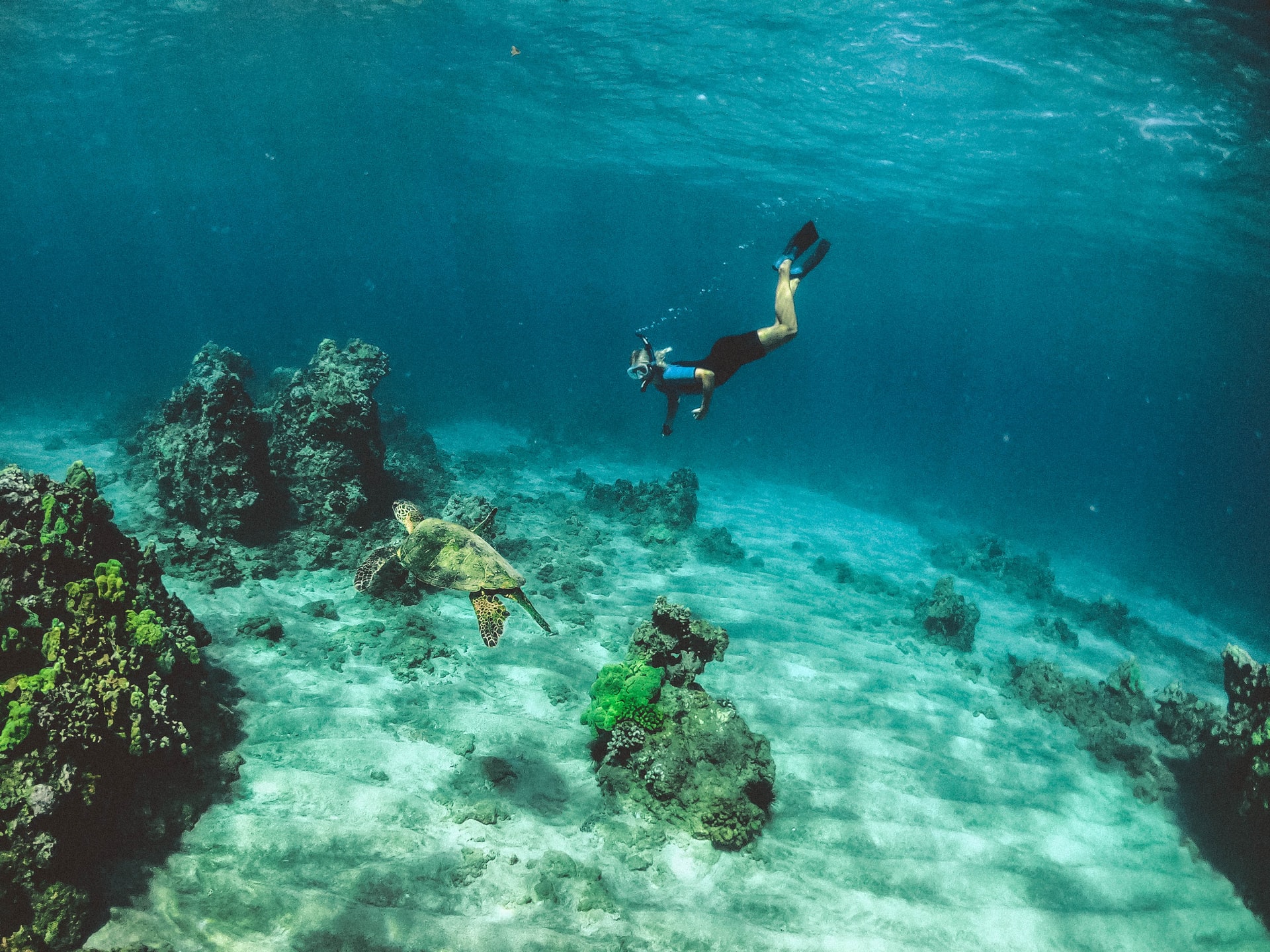
Can’t Hear After Snorkeling? 3 Possible Causes (& Solutions)
-
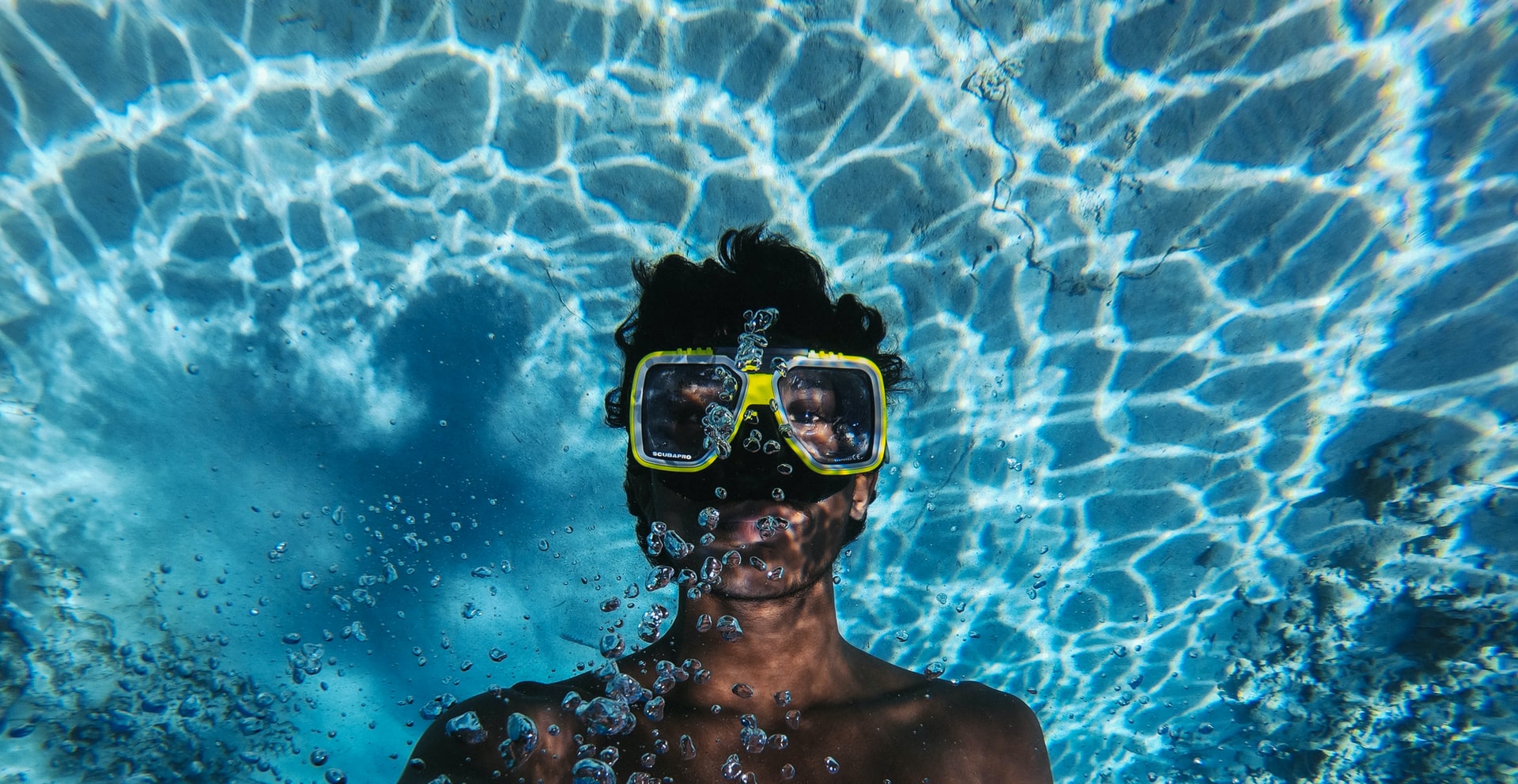
Can Snorkeling Cause a Sinus Infection? (+9 Tips to Avoid It)
-
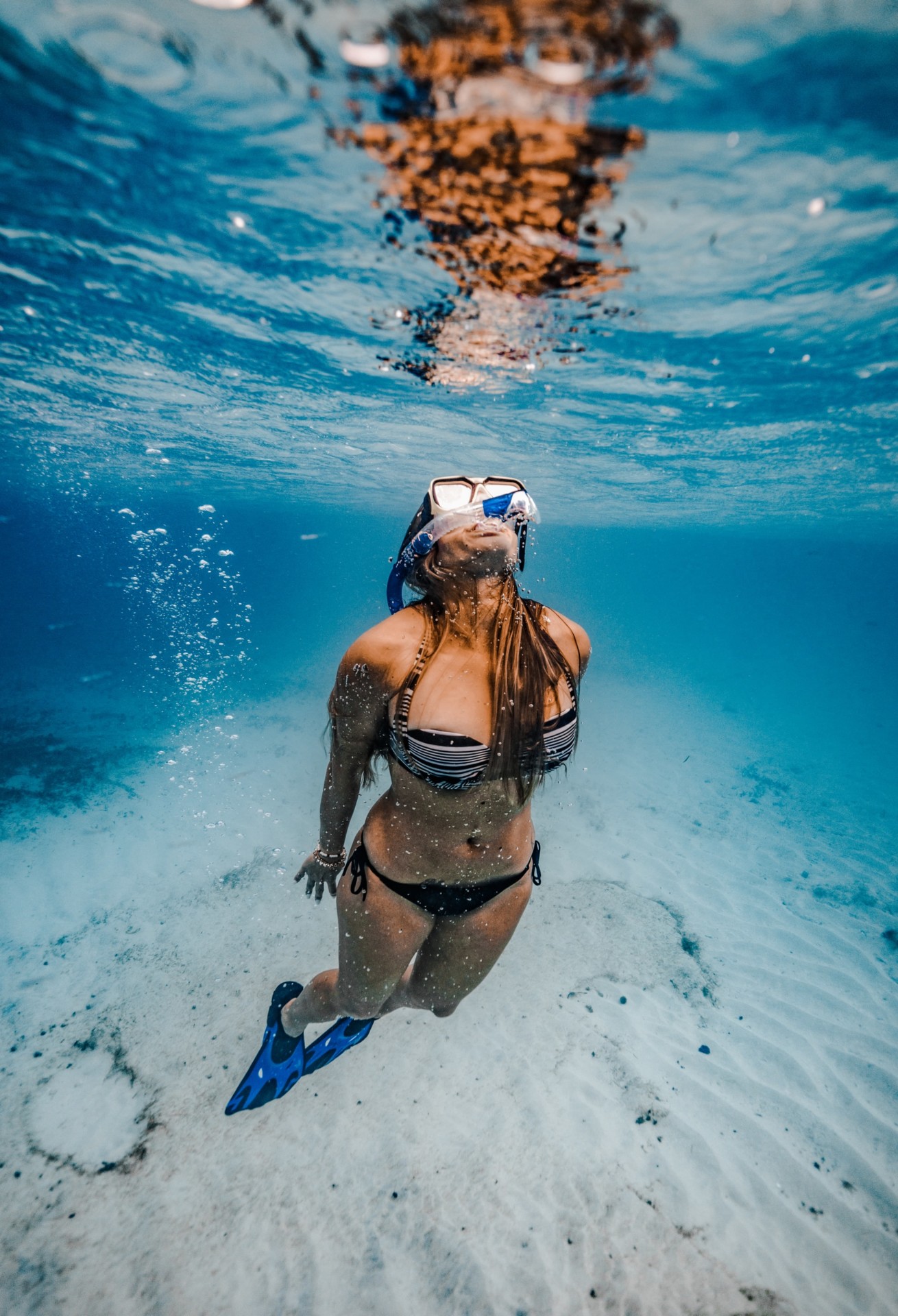
Can Snorkeling Cause a Sore Throat? 8 Common Causes (+Tips)
-
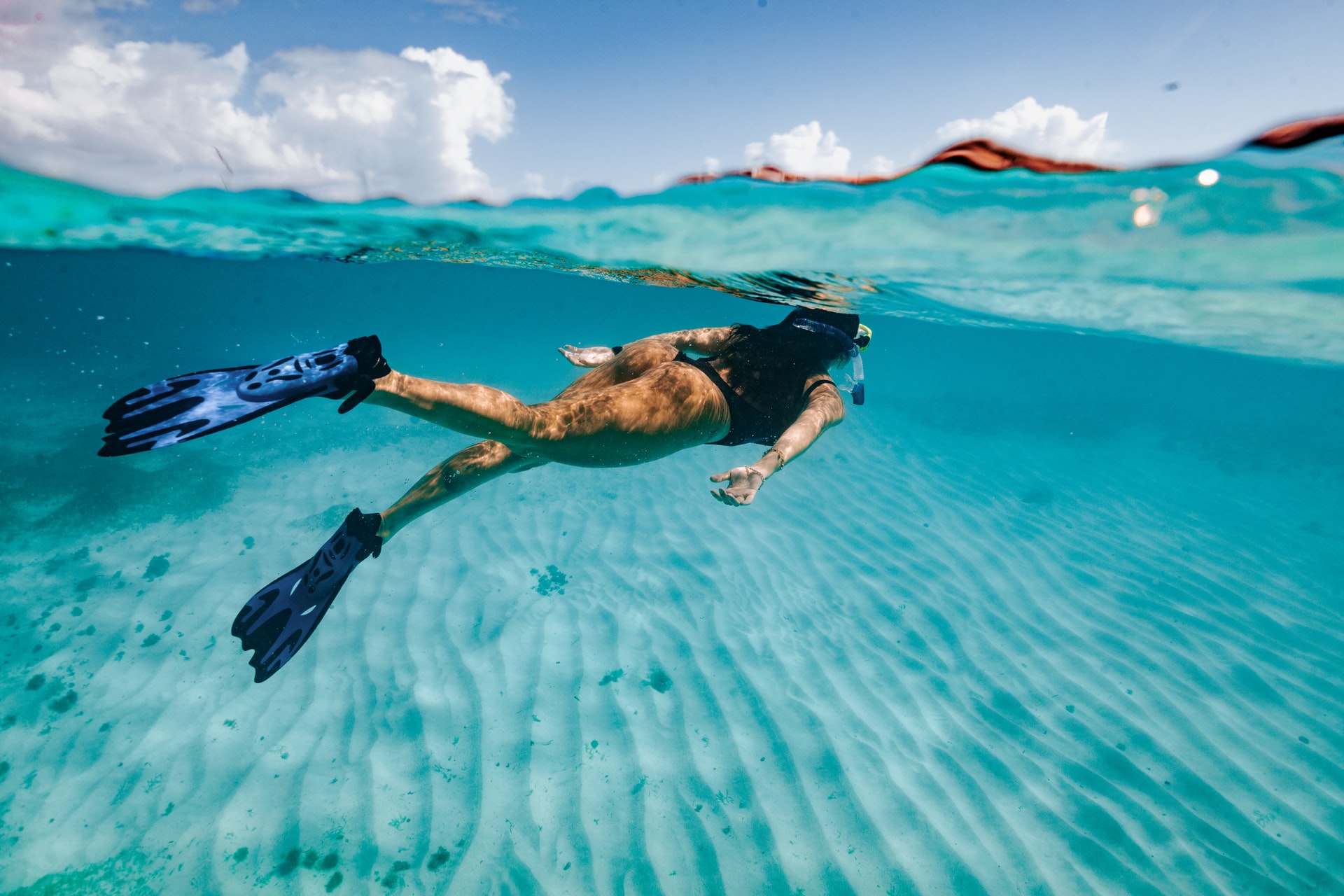
Can Snorkeling Cause Vertigo? (+8 Tips to Avoid It)
-
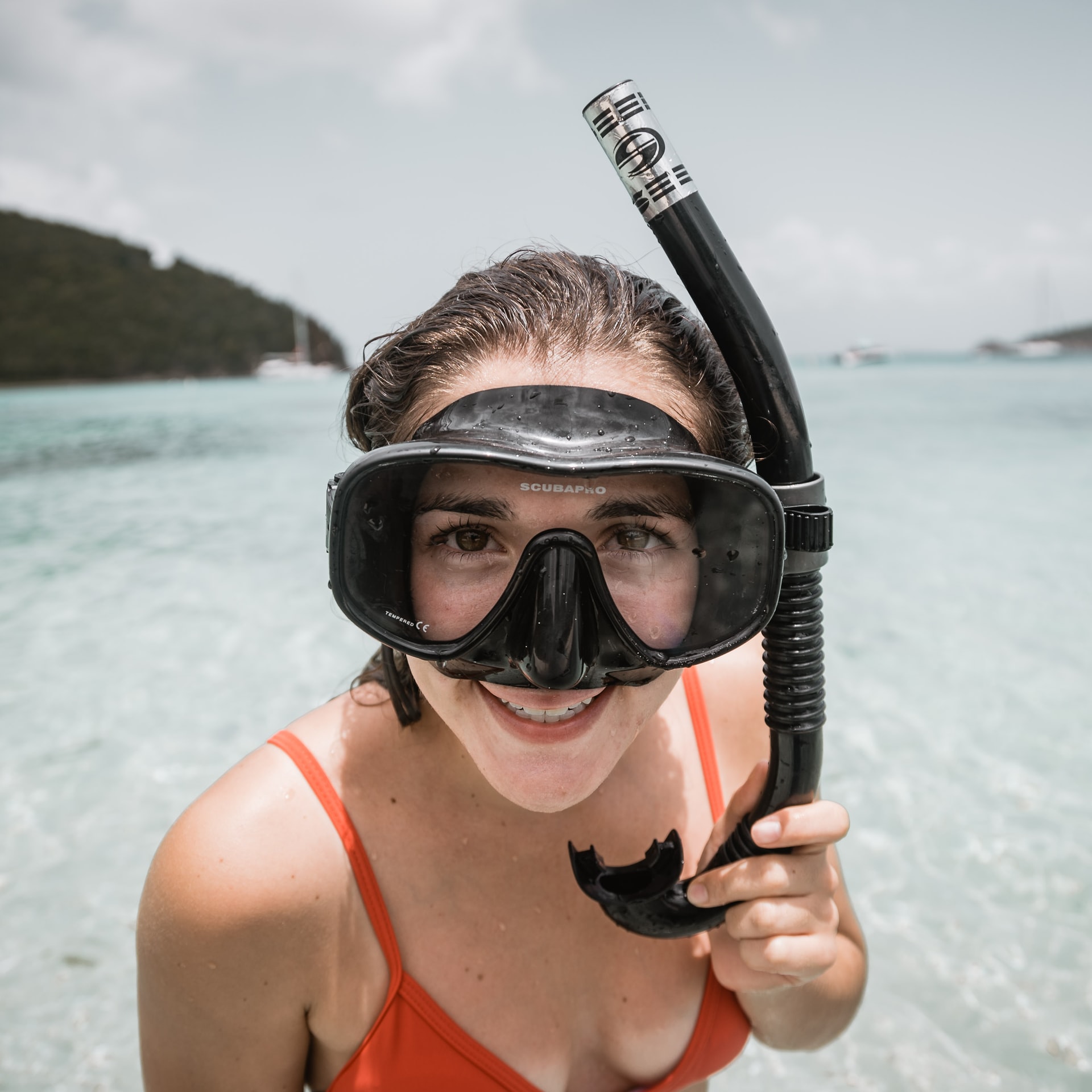
How Do Snorkel Masks Work? (+Regular Vs. Full-Face Masks)
-
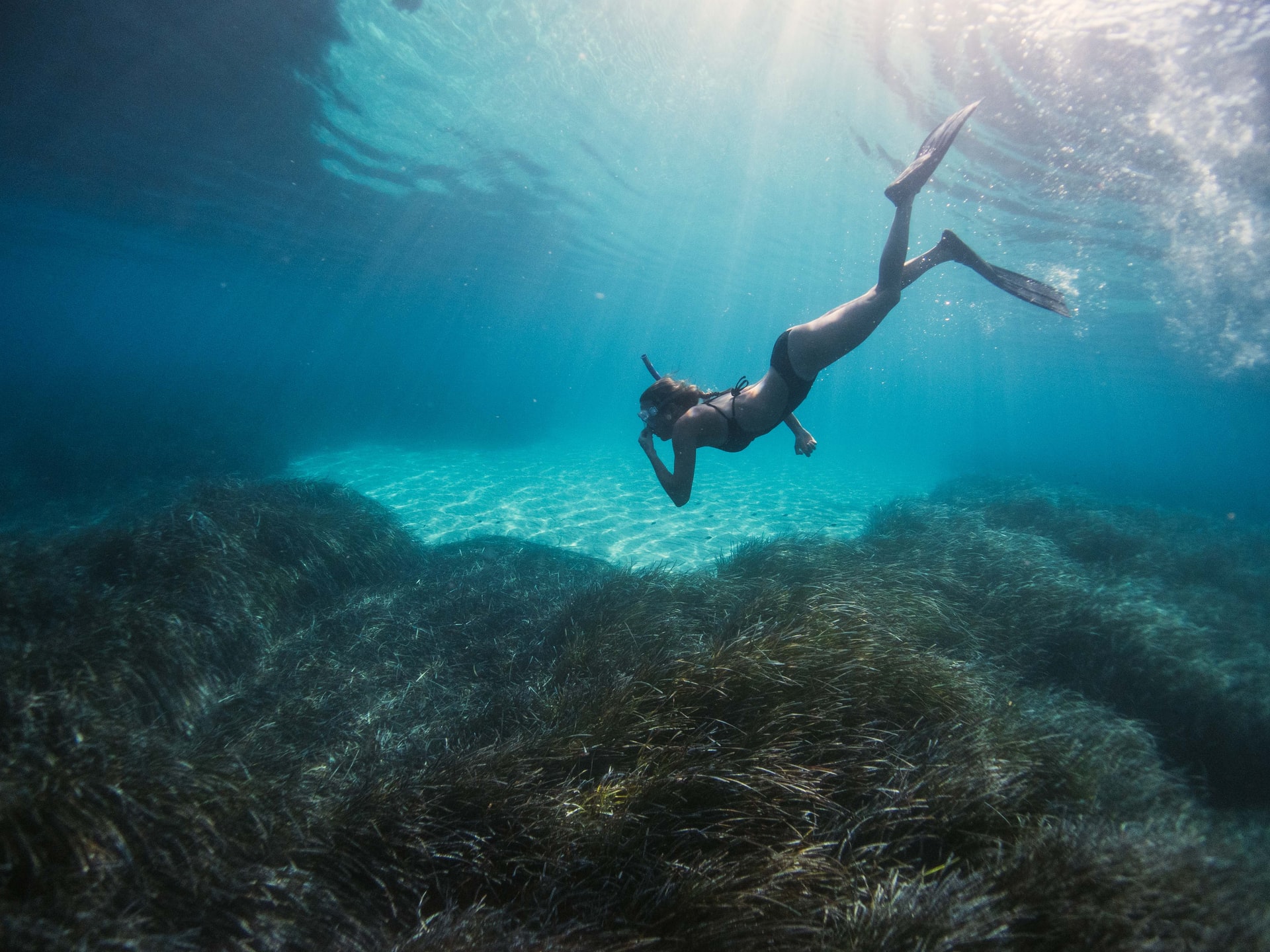
Why Does Snorkeling Make Me Nauseous? (11 Causes & Remedies)
-
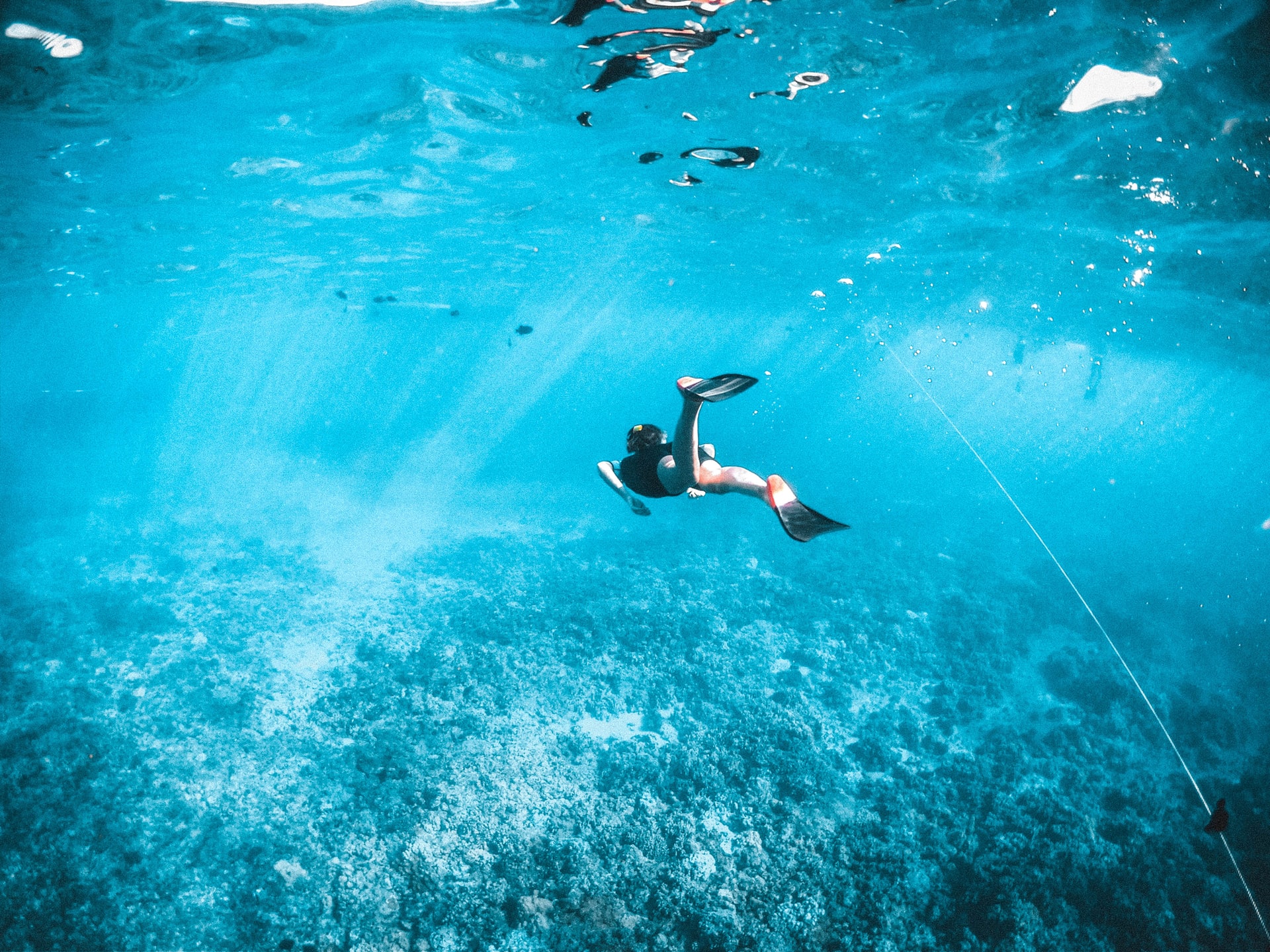
What Does Snorkeling Feel Like? FAQs Answered (for Beginners)
-
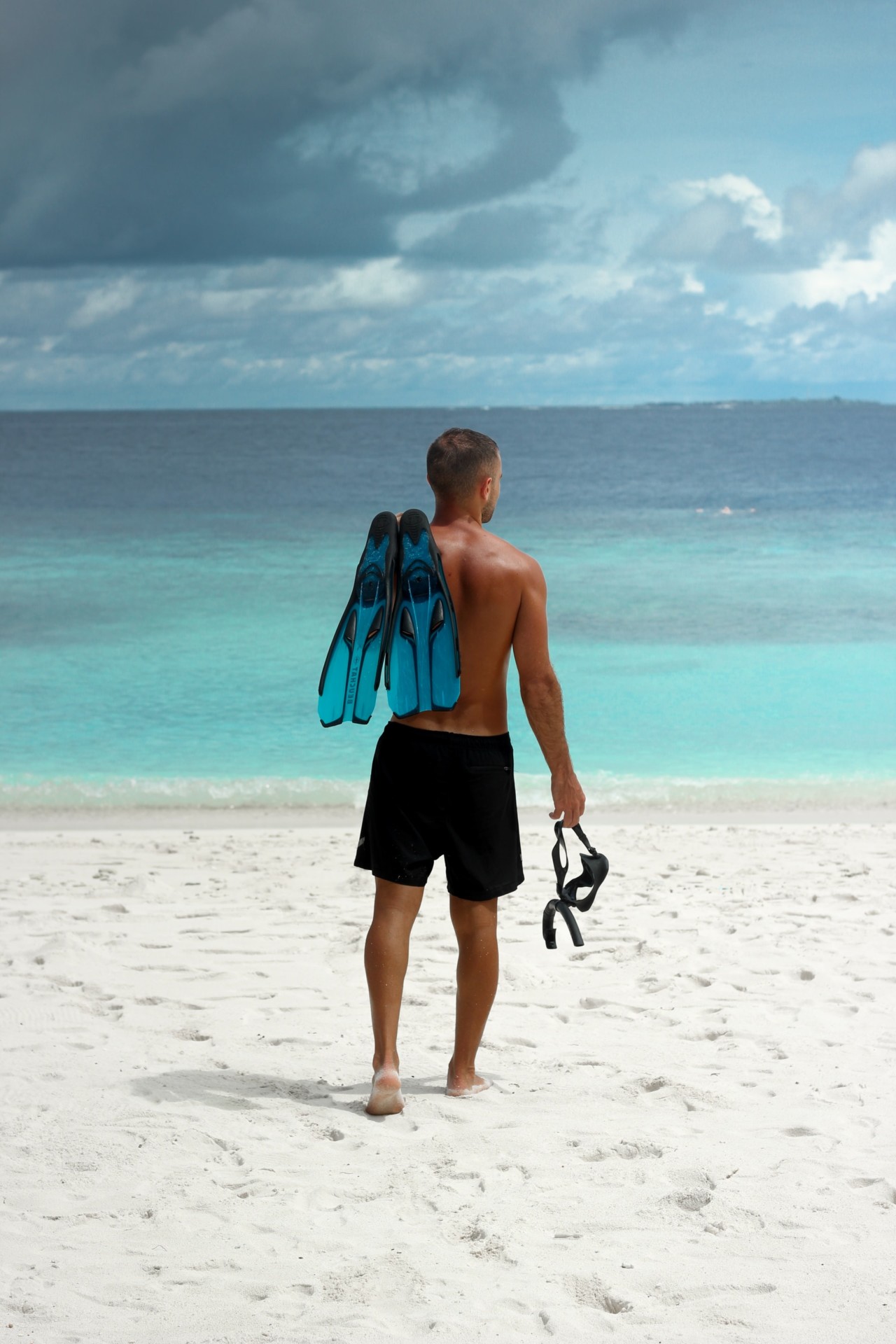
Does Rain Affect Snorkeling Visibility? 4 Ways It Does (+Helpful Tips)






